Congressman warns of China threat amid dangerous military gap
The Indo-Pacific future depends on AUKUS partners doing whatever it takes to deter Beijing’s aggression.
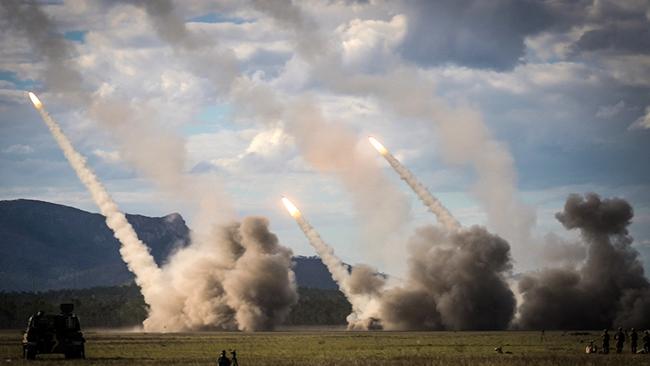
Gallagher, a Republican from Wisconsin and chair of the house committee on China, is leading a delegation in Australia to participate in the Australian American Leadership Dialogue.
The AUKUS agreement to deliver nuclear-powered submarines to Australia has nearly unanimous support in the American congress and will succeed, according to the consensus of this delegation.
In his opening speech to the Dialogue, Gallagher, also the chair of the Friends of Australia caucus in Congress, was uncompromising and passionate: “Nothing in Washington is unanimous, but support for the US-Australia alliance, for AUKUS, and for the submarine deal is as close as it comes … AUKUS will be successful and, and America will fulfil its commitment to its friends.”
Gallagher may be overstating this a bit. No one can guarantee the future, and there are powerful isolationist sentiments in both the Republicans and the Democrats. Nonetheless, the level of congressional commitment Gallagher brings, shared by his Democrat colleague Joe Courtney, is a huge asset for Australia and AUKUS.
Gallagher is highly ambitious for AUKUS. He believes it is a critical partnership in providing allied deterrence to China and preventing war in the Indo-Pacific. As he argued: “To prevent war, AUKUS must in a sense adopt a war footing.”
The proceedings of the AALD are confidential and off the record. But Gallagher’s dinner speech was circulated to the media. In it, he called for a combined thrust on missile production among the US and its key allies in the years ahead: “We must prioritise trilateral co-production of next-generation long-range missiles under Pillar 2 of AUKUS. An AUKUS crash program on long-range precision fires, with the associated effort to forward-base and operate these fires in concentric circles of fire throughout the Indo-Pacific Command, could supply our near-term deterrent as we await longer-term deliverables like nuclear attack subs.”
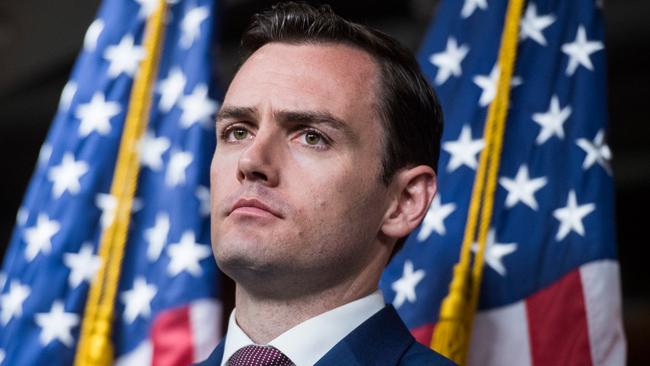
In an interview with Inquirer, Gallagher expressed confidence AUKUS and the nuclear submarines deal would continue even if Donald Trump returned to the presidency: “Trump promised to rebuild the navy in 2016,” he told me. But while the Trump administration did spend more on the navy, this went to “the readiness crisis” rather than to new ships. “We didn’t get anywhere near the 355-ship navy that we need,” he said. The US Navy today sits well below 300 ships.
Asked about wider Republican attitudes to foreign policy, Gallagher expressed confidence: “There is a tonne of consensus on doing more to confront China, on the need to do more and spend more. A key part of this is AUKUS. Ukraine is a little more contentious.”
He also expressed faith in the “reservoir of common sense in the American people” regarding international issues. However, he evinces an almost equal faith in the bad judgment of Chinese leader Xi Jinping: “My view is that when a dictator tells you what he’s going to do, even if it sounds crazy by Western standards, we’d better take him seriously. When Xi tells us he wants to take Taiwan by force, that’s what he means. He’s getting older; it would put him in the same league as Chairman Mao.”
So what does Gallagher think are Beijing’s ultimate strategic aims? “In the near term, it’s to take Taiwan, in the longer term it’s to displace the US as the global super power. The chance of a war over Taiwan, initiated by the Chinese Communist Party, is rising over the next five years. He seems to be preparing his country for war. There’s this cult of the Korean War in China now.”
This is a dark and in some ways terrible vision. But Vladimir Putin for years told us exactly what he planned for Ukraine and, mostly, we didn’t believe that. It’s most likely that Gallagher is giving us a pretty accurate read of a reality that is too difficult for many national leaders to look honestly in the face.
How does all this relate to the actions of the Albanese government? The recent announcement that Australia would by the end of 2025 begin manufacturing rockets for use in HIMARS army missile systems is a key part of Gallagher’s ambition, widely shared in Washington and in parts of Canberra, that AUKUS nations must ramp up the building of all types of missiles. To begin with, Australia will manufacture the relatively short-range GIMARS rockets. But the ambition is to use that manufacturing to acquire the expertise and experience that will allow Australia to move up to manufacturing longer-range HIMARS rockets, and eventually the PRISM long-range rocket, which has a development path that will certainly lead to a range of 500km and could possibly lead 1000km.
It is also an Australian ambition ultimately to manufacture longer-range naval strike missiles. The government is expected soon to announce an order for Tomahawk missiles from the US for use on our Air Warfare Destroyers. It has still not decided whether to ask the US to resume production of the type of Tomahawks which could be fired from the torpedo tubes of our six Collins-class submarines. The addition of Tomahawk missiles would make the AWDs and the Collins subs vastly more potent platforms than they are now. That they are the only two naval platforms which could realistically use Tomahawks is an indictment of how small and feeble the Australian Defence Force is, but it still has its uses.
However, Gallagher was also realistic about the challenges and difficulties facing AUKUS. For a start, he was, as recorded above, absolutely clear that the purpose of AUKUS is to counter and deter Chinese aggression. Given Canberra’s present stress on normalising relations with Beijing, no one in Canberra, at this moment, is speaking publicly with that degree of bluntness. The Albanese government has to be careful that it does not drop the ball on keeping the Australian public informed of the strategic dangers Australia faces. It will never maintain the political will, nor secure the community consensus, to take the hard decisions which AUKUS will in time demand if it pretends to the public that everything is rosy.
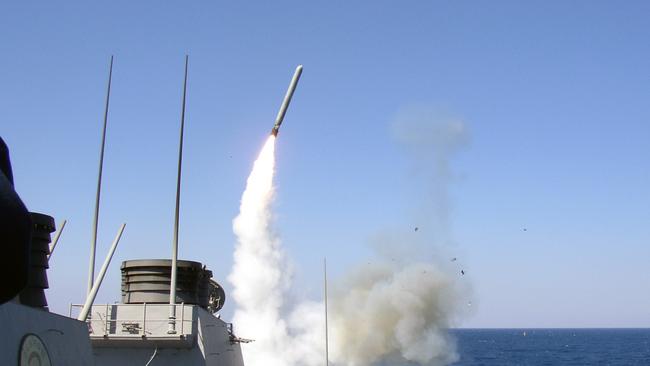
The fact the Americans speak bluntly in our presence, and we agree with them without using the same language, is second best, but certainly better than nothing. However, all three nations involved in AUKUS will need to make huge investments and hard trade-offs if AUKUS is to succeed.
Gallagher outlined the scope of the problem: “Putin’s war of aggression in Ukraine has exposed the fact that, when it comes to defence industrial capacity, the entire democratic world has been shirking its responsibilities for the better part of 30 years. The result is that the US defence industrial base is severely under-resourced and ill-equipped to meet surge production requirements.”
Gallagher laid out a series of stark figures that make the point. The US Navy requires 66 nuclear-powered attack submarines. It has 49. With planned ship retirements, that’s likely to go down to 46 before it eventually starts to build up, but under current plans the number of US attack subs does not reach even 60 until the 2050s.
Gallagher didn’t make this point directly, but in this context it will be difficult for the US to sell three to five Virginia-class nuclear powered submarines to Australia, beginning in the first years of the next decade. Gallagher’s broader point is that even with full US/British/Australian industrial integration, and with the investment of some billions of dollars of Australian money into US submarine-building capability, the US itself will need to invest vastly more into naval ship building than the Biden administration has contemplated.
The underlying truth is that AUKUS is epic in its ambition, but not remotely guaranteed of success. None of the governments involved has yet had to make hard decisions about AUKUS, but without really hard decisions, AUKUS will ultimately fail.
In a powerful new analysis in Foreign Affairs magazine, Charles Edel argues that AUKUS is designed to transform the Indo-Pacific region. In Edel’s view, AUKUS represents a fundamental change of both military and industrial policy from all three of its member nations. The US is moving away from seeking unilateral unchallenged military primacy in the Indo-Pacific and instead has decided as a fundamental element of strategy to greatly enhance the power of its closest allies.
It’s also moving away from the hub-and-spokes model of its Asian alliances, where each Asian ally was allied to the US but more or less indifferent to other US allies, to a “lattice” pattern of alliances and relationships where allies are more closely related to each other, militarily and geo-strategically.
Thus, as well as AUKUS, a fundamentally important new grouping is the Quadrilateral Security Dialogue, involving the US, Australia, India and Japan. For Britain, the change involves embracing a global, or at least Indo-Pacific, role as well as a European role. For Australia the change is to acquire a much more formidable military than it has had in the past.
Edel further argues that while the nuclear submarine element of AUKUS will remain restricted to the US, UK and Australia, Pillar 2 of AUKUS is designed to bring in allied and like-minded collaborators, especially nations such as Japan, South Korea and India.
Pillar 2 covers hi-tech military industrial and research co-operation in areas such as hypersonic weapons, artificial intelligence, quantum computing, machine learning, cyber and space co-operation. No other nation has an industrial or research base to match the US, but adding Japan, South Korea, Australia, the UK and India to that base will make it vastly more powerful.
However, the protection of critical defence intellectual property, and the security of secrets more generally, will be acutely important in this environment. One way in which AUKUS could well fail is if the Americans lose confidence in Australia’s ability to keep secrets. The Albanese government has a centre left disposition to greater openness, which in some ways is laudable but could be dangerously counter-productive.
To take one minor example, the government will expand the membership of the Parliamentary Joint Committee on Intelligence and Security beyond the government and opposition to include a crossbench MP. Without offering any insult to any crossbencher, that’s a mistaken and potentially dangerous move.
The PJCIS supervises the legislative governance of the intelligence agencies. It doesn’t normally get involved in operational knowledge but it does seek operational information when it examines how new laws might affect security agencies. It’s normally populated by the government’s most trusted backbenchers and the opposition’s most relevant front benchers. Although Andrew Wilkie once served on the committee, it has generally been a committee of the parties of government. If the Greens should gain more lower house seats, they too can be expected to seek a place on the committee.
The same is likely to be true of the new parliamentary committee the government is set to form to oversee the defence department. The formation of this committee is a very good, and long overdue, reform, given the scale of waste, dysfunction and failure to deliver that has characterised defence.
But the more politicians there are on these committees, and the more they represent parties and individuals which can never expect to shoulder the responsibility of government, the greater is the risk that they cannot keep secrets. Yet one of the many requirements of the AUKUS era will be a much greater Australian ability to hold information securely than ever before.
Edel outlines several key ways that AUKUS could fail. One is that governments simply refuse to fund it meaningfully. The Albanese government strongly rejects the argument that it has effectively cut defence expenditure. But in strategic circumstances which it has frequently told us are the most dangerous for Australia in 70 years, and after years of Chinese wolf-warrior diplomacy and coercion, and at a time of hot war in Europe with every industrial sinew of the West at full stretch to deliver Ukraine’s needed weaponry, it has certainly not increased defence expenditure. The questions are: If not now, when? And, if not now, why not? The government is promising to increase defence spending just the other side of the forward estimates. But there is not remotely the sense of urgency in defence preparedness that the government’s own rhetoric, and the objective international circumstances, clearly demand. In fairness, the Biden administration, as Gallagher charges, has also not shown the urgency the times demand.
Similarly, the government has given in to a fairly low-voltage Aboriginal-led community campaign, and initial court decision, and abandoned the chosen site to store low-level nuclear waste from Australian hospitals and medical practices. At the same time, it has decided to put off until way past the next election announcing a site for an east coast nuclear submarine base. But if the government in its first term cannot manage to bury a few medical gloves used in X-rays, how can we believe it will defeat a ferocious NIMBY campaign, greatly augmented by clandestine Chinese government-sanctioned social media campaigns and probably influence operations as well, to oppose such a base in Port Kembla, Newcastle or Queensland?
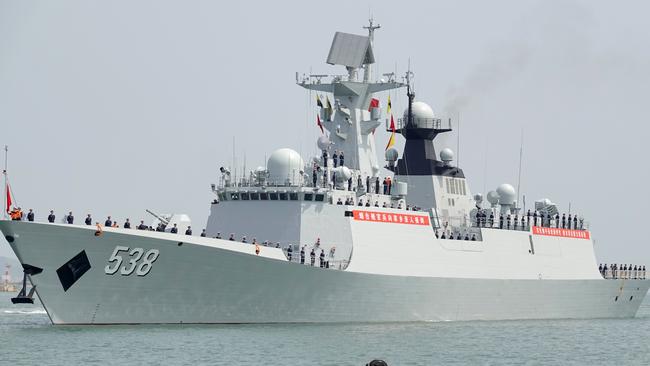
This is not a partisan criticism of Albanese or the Labor Party. There is no evidence that the other side of politics, which similarly dodged announcing an east coast submarine base site, could do any better.
Edel also identifies the huge challenge of maintaining strong bipartisan support for the AUKUS venture in the US, UK and Australia over at least a couple of decades. Although I believe the US is a profoundly reliable ally, Australians can have some concerns over the next US presidential term. If the next president is Donald Trump, the situation is likely to be chaotic and the US perhaps all but paralysed by internal division. But the internal polarisation will also be intense under a second Biden administration. Republicans are plainly moving towards an impeachment effort against Biden.
At a more mundane level, some of the best people are likely to leave the Biden administration. Kurt Campbell, the Indo-Pacific Co-ordinator at the National Security Council, has been critical to Biden’s China policy and Asia policy generally, which have been infinitely better than the ham-fisted efforts in the Middle East.
Campbell has told people he’s leaving the administration before or at the end of the first term. Campbell was a critical player in the first administration of Barack Obama, which produced the “pivot” to Asia. But when he, secretary of state Hillary Clinton and defence secretary Robert Gates left, the second Obama administration was vastly less effective and much less focused on Asia. This syndrome is all too likely to be repeated in a second Biden administration.
This is where the AALD will have a critically important contribution to make. Its co-chairs are Tony Smith, the former Speaker of the House of Representatives, and Evan Feigenbaum, the vice-president of the Carnegie Endowment for Peace and a former senior State Department official. Feigenbaum tells me the Dialogue, which held its first meeting in Washington DC in 1992, has led the thinking in alliance development and evolution.
It was founded by businessman Phil Scanlan and his wife, Julie, arising from a conversation with George H. W. Bush in 1990. Scanlan saw the WWII generation of leadership was passing from the scene and the relationship needed to move beyond a narrow military focus. Over the decades, the AALD has pioneered the broadening of the relationship, especially into deeper technology sharing. Longtime Dialogue participant Bob Zoellick launched the idea of a free-trade agreement between the two nations. As early as the end of the 1990s, the Dialogue conducted an alliance review and published a book advocating much more joined-up US alliances in Asia and greater co-ordination in allied nations’ China policy.
This year, though its deliberations are confidential, it will examine among other things enhanced US/Australia co-operation in critical minerals.
The achievement of the Dialogue is a magnificent tribute to what has become the Scanlans’ life work and a profoundly valuable gift to the Australian nation. But as Gallagher alerts us, these are profoundly dangerous times, with the chance of war a serious reality.
The key question is not whether we are doing as much or more than our forebears, but whether our actions match the urgency and need of the historic moment.


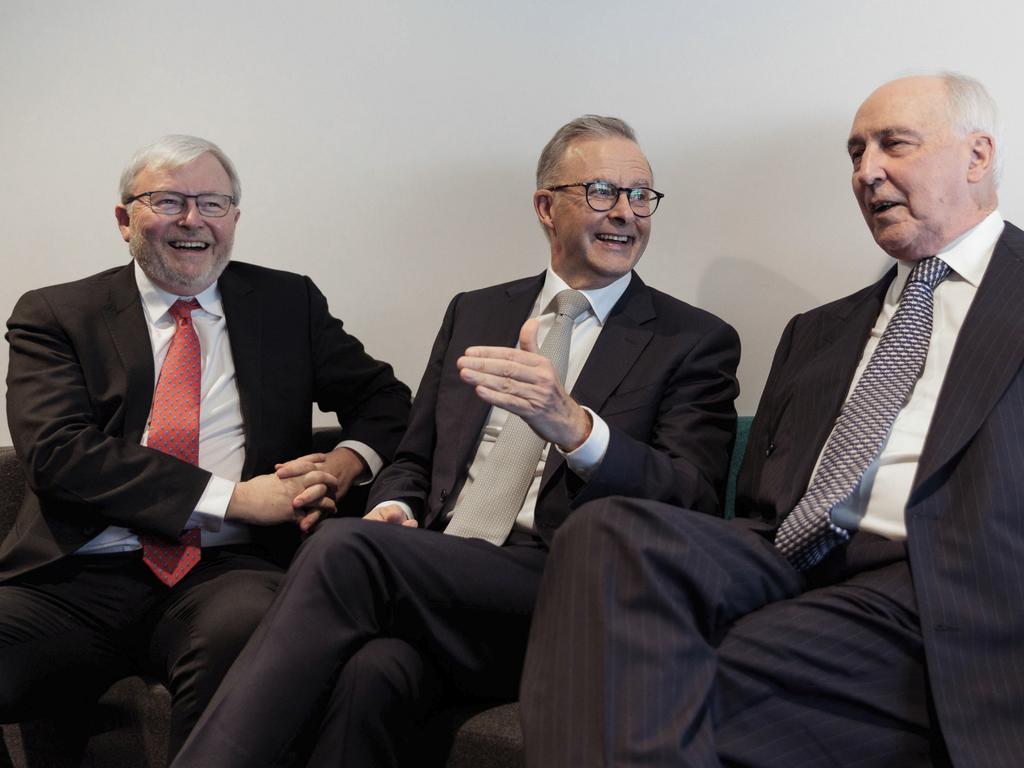

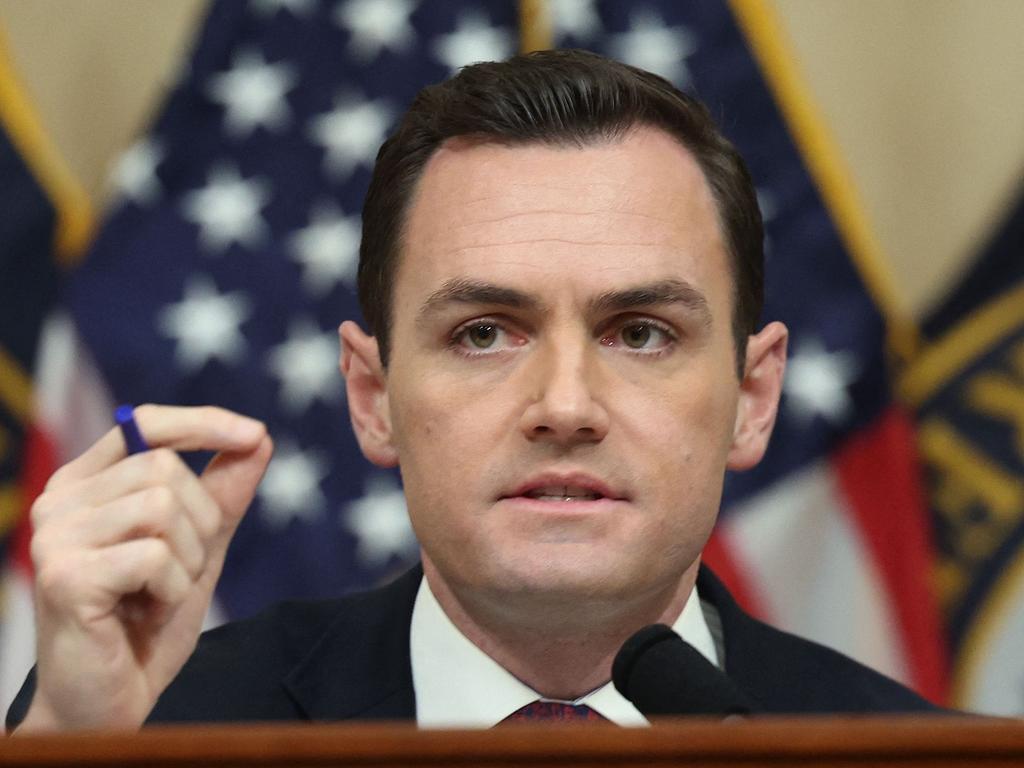
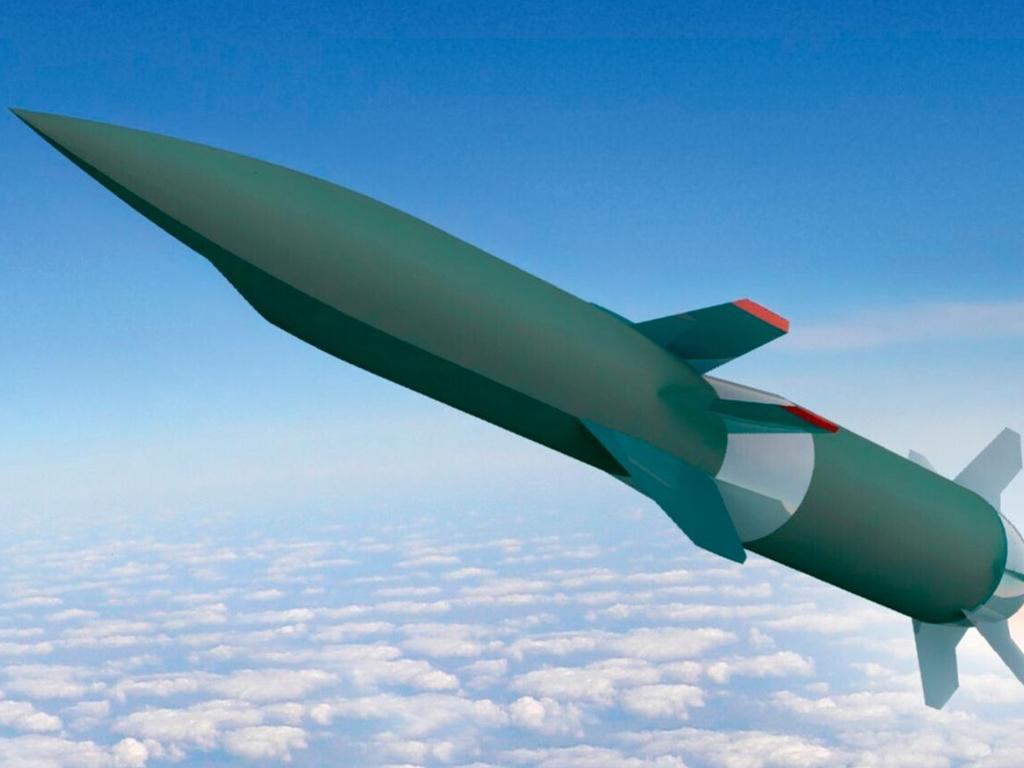


The risk of war with China is growing, and the best chance of avoiding it is a beefed-up deterrence provided by the AUKUS agreement, according to Mike Gallagher, one of the most influential congressmen in Washington.